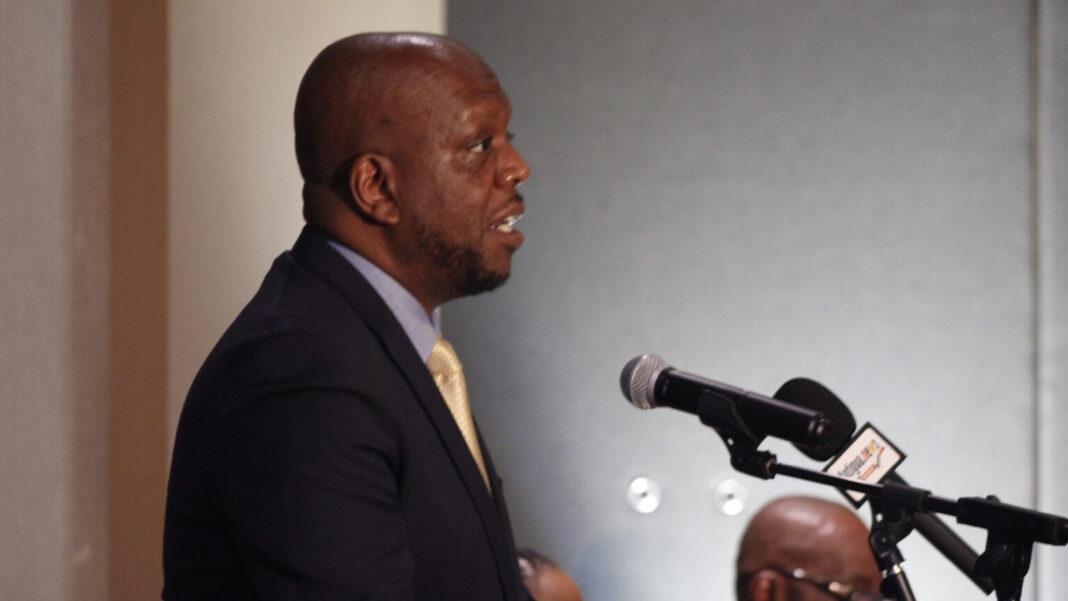President of the African Centre in New York and featured speaker at yesterday’s Diplomatic Encounter Forum Martin Kimani highlighted the importance of close diplomatic relationship between Africa and the Caribbean, describing the region as “Africa’s sixth region”.
Speaking to Observer media following his address at The Royalton Resort, the Ambassador, who previously served as Kenya’s Permanent Representative to the United Nations, gave his views on how Africa can and has benefitted from the relationship with Antigua and Barbuda, as well as the wider Caribbean.
“The Caribbean and its people are from Africa. They are of African descent,” Ambassador Kimani said.
Highlighting the historical connections that have shaped both regions’ development, he noted that “in our long history, there have always been visionaries who have hoped to reconnect and re-engage with Africa. One can trace the roots of decolonisation and anti-colonialism from the Caribbean, which became part of the African push for self-determination and independence,” he said.
The diplomat emphasized that the African Union-CARICOM relationship has evolved into more structured cooperation.
“Africa needs CARICOM in terms of its leverage globally. CARICOM needs Africa for the same reason. The fact that we are all Africans and that we have fought for our independence together means that our future should be shaped by us together,” Ambassador Kimani stated.
He pointed to successful collaboration at the UN Security Council, where Caribbean states have formed a powerful voting bloc with African nations.
“What is not well known is what is called the A3 plus. The Africa 3 plus is one of the lesser-known groupings in the Security Council. The powerful states did not ever foresee a time when African states and Caribbean states would combine politically at the highest level to push their priorities.”
Looking ahead, he called for deeper institutional connections between the regions and urged diplomats from both regions to adopt a more assertive approach to diplomatic relations.
“The next stage is making the African-CARICOM connection much more linked across a range of subjects. That means more African embassies in the Caribbean, more trade and investment between our regions, more Africans in the University of West Indies, more Antiguans in the University of Nairobi,” he said.
He added that “there’s no future for polite, retreating diplomacy. There’s only a future for bold, aggressive and visionary diplomacy… To be an effective diplomat does not mean being diplomatic. It does not mean allowing outrage and injustice to occur while you’re watching.”
He warned of attempts to “revise history, to give voice to racism, to reconfigure the international system” that would disadvantage developing nations.
“We’re going to need fighting diplomats,” Kimani said. “I believe when you combine that kind of spirit with what we have to fight for and the urgency of what we have to fight for, diplomacy still has a lot to offer.”




